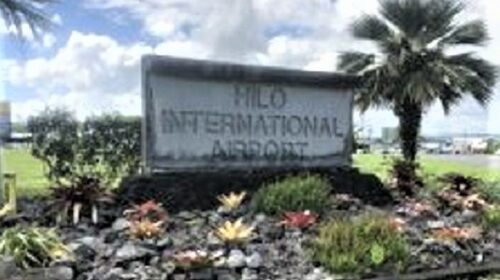Honolulu releases first-ever Climate Action Plan for Oʻahu
Honolulu Mayor Rick Blangiardi announced today, on Earth Day, the release of the City and County of Honolulu’s 2021 Annual Sustainability Report, as well as the City’s first-ever climate action plan entitled One Climate: One O‘ahu. The climate action plan represents a science-based, community driven strategy for O‘ahu to uphold the City’s commitment to the Paris climate agreement and reduce carbon emissions in line with long-term goals beyond net-zero by 2045.
“There is no denying the effects climate change has already had on our island and the projections for increased impacts through this decade and beyond,” said Honolulu Mayor Rick Blangiardi. “This plan charts us on a course to take bold, transformative action today and tomorrow in our efforts against climate change. This is a very real crisis for Hawai‘i and our planet that deserves our full attention.”
The plan outlines nine strategies with specific actions to reduce emissions from energy, ground transportation, and waste sectors – three areas that collectively account for nearly two-thirds of O‘ahu’s current carbon emissions.
Developed in partnership with the University of Hawai‘i, the newly-released plan was shaped by more than 2,000 perspectives shared from across the island through in-person community meetings, focus groups, a technical working group, virtual open houses, and online surveys.
“Protecting our people from climate change is our kuleana,” said City Council Chair Tommy Waters. “Over the past two years the City Council has passed strong measures to address the climate emergency and we look forward to working with the Administration to implement this Climate Action Plan in full. Moving quickly to a clean energy economy will make it safer and more affordable for residents to live on Oʻahu long into the future.”
Initiatives to reduce local emissions are already well-underway. The City has selected two Energy Service Company (ESCO) partners to identify and implement cost-effective municipal building retrofits, accelerating the City’s efforts to become more energy efficient and save limited taxpayer funds. Our City bus fleet now has three electric buses, with an additional 14 electric buses set to arrive throughout 2021. As these buses come online, communities along TheBus Route 40 from Mākaha to Ala Moana will be among the first to have access to the clean, zero-emission, quiet, and comfortable rides on these new buses. And, as a part of the Honolulu Complete Streets program, the City is finalizing its newest protected bike lanes on Ward Avenue, providing an important mauka-makai connection that not only improves both bicyclist and pedestrian safety, but that also increases safe access to commercial areas, a growing residential community, and City parks from Thomas Square makai to Kaka‘ako and Ala Moana.
“With this climate action plan, Honolulu will join other major U.S. cities in outlining bold strategies to reduce emissions and build safer streets for residents to walk, bike, or ride public transportation,” said Elizabeth Stampe, a city strategist of the Bloomberg Philanthropies American Cities Climate Challenge. “This climate action plan, once passed, should position O‘ahu well for federal funding as the Biden Administration looks to support local climate leadership.”
The 2021 Annual Sustainability Report, is the third annual report and tracks City and community-wide progress on key sustainability indicators, including renewable energy generation, waste diversion, transportation affordability, and climate equity among other metrics.
This year’s Annual Sustainability Report shows improvements in key areas such as water reuse, trees planted and waste reduction, while noting progress has lagged in other areas. Notably, O‘ahu’s overall carbon emissions increased 5.1 percent in 2019 compared to 2018, mainly due to emissions increases in the transportation sector.
“Already Oʻahu is rising to the challenge, but we also know there is more we need to do to reduce negative impacts today and set the stage for tomorrow’s positive outcomes,” noted Matt Gonser, chief resilience officer and executive director of the City’s Office of Climate Change, Sustainability and Resiliency.
Now finalized, the climate action plan is being shared with City Council for adoption, the final step to secure O‘ahu’s commitment to local and international climate goals.
“Climate change and a just transition needs to be at the forefront of how the City leads in recovery from the pandemic, how we provide inclusive City core services, and the building of resilient infrastructure to support the growth of our communities,” stated City Councilmember and Chair of the Transportation, Sustainability and Health Committee Radiant Cordero.
To learn more and to review both the 2021 Annual Sustainability Report and the Climate Action Plan, visit resilientoahu.org.




